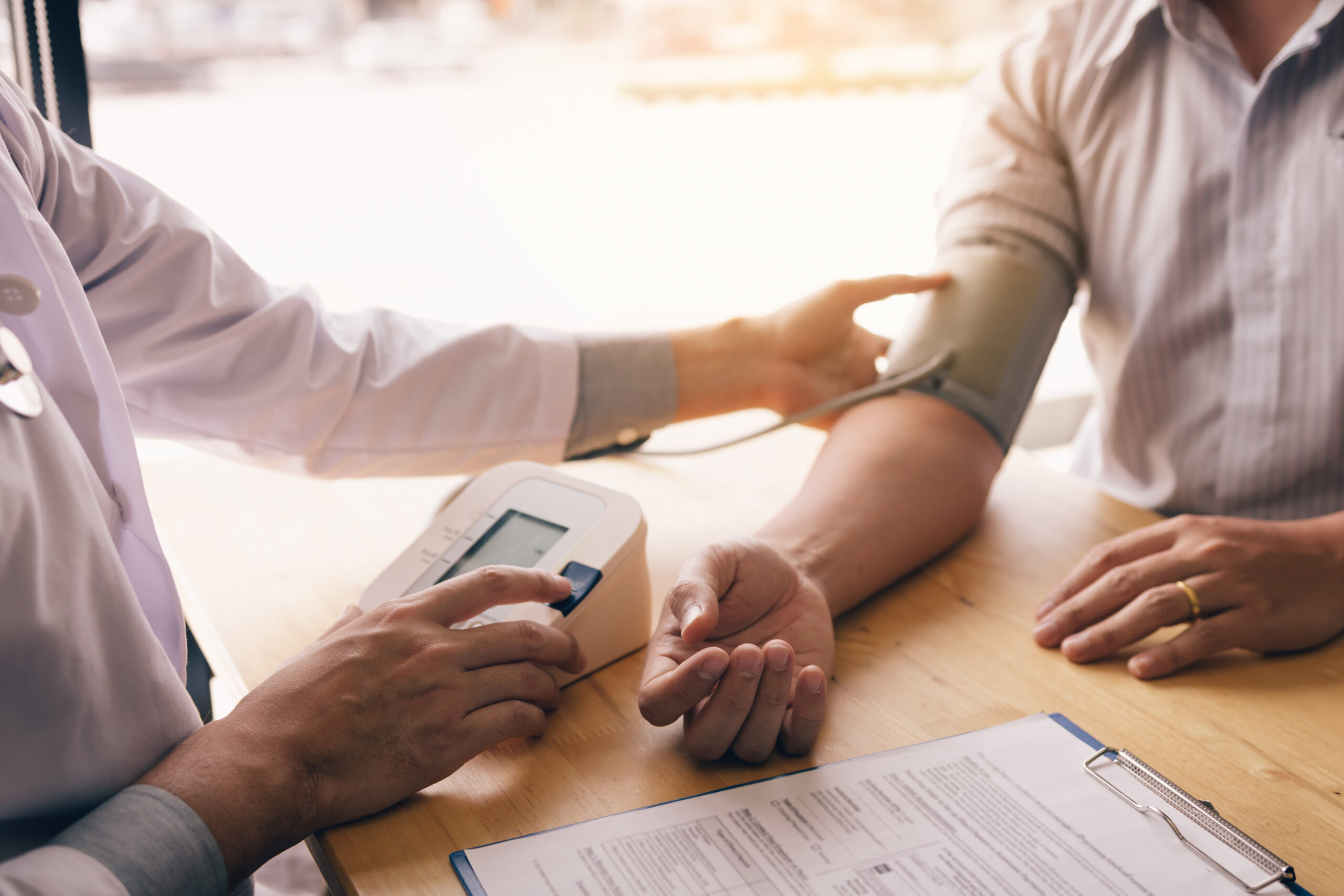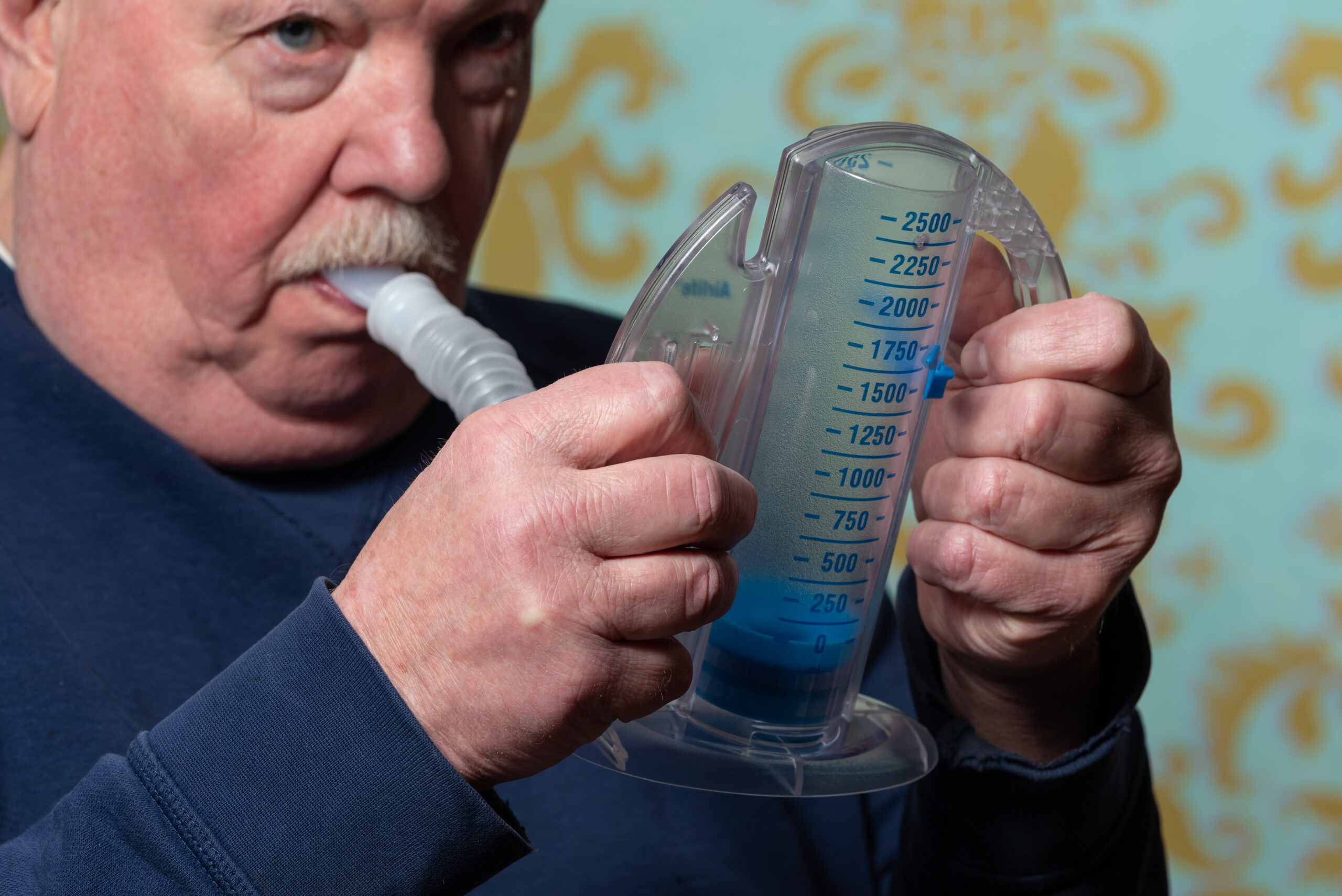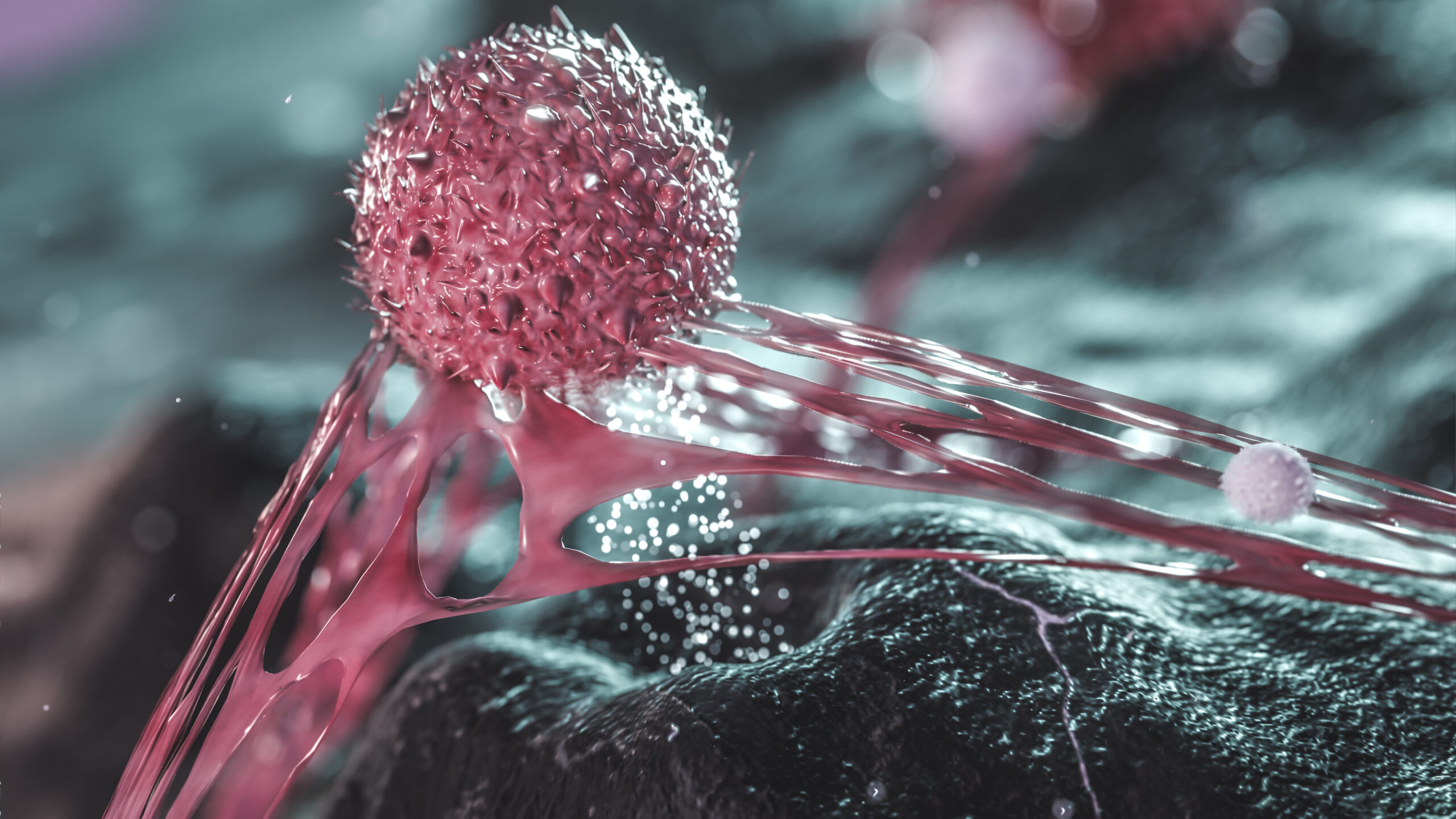What is hypertension?
Hypertension, also known as high blood pressure, is a common medical condition where the force of blood against the walls of the arteries is consistently too high. Blood pressure is measured in millimeters of mercury (mmHg) and is expressed as two numbers: systolic pressure (the higher number) and diastolic pressure (the lower number). The systolic pressure represents the pressure in the arteries when the heart beats and pumps blood, while the diastolic pressure represents the pressure in the arteries when the heart is at rest between beats.
Normal blood pressure is usually defined as a systolic pressure below 120 mmHg and a diastolic pressure below 80 mmHg. Hypertension is generally diagnosed when a person’s blood pressure consistently reads 130/80 mmHg or higher.
There are two main types of hypertension:
- Primary (essential) hypertension: This is the most common form of high blood pressure and has no identifiable cause. It develops gradually over many years and is likely a result of a combination of factors, such as genetics, lifestyle, and environmental factors.
- Secondary hypertension: This type of high blood pressure is caused by an underlying medical condition or the use of certain medications. Some common causes include kidney disease, adrenal gland disorders, thyroid problems, and the use of certain drugs like nonsteroidal anti-inflammatory drugs (NSAIDs), oral contraceptives, or decongestants.
Hypertension is often referred to as a “silent killer” because it typically has no noticeable symptoms, but if left untreated, it can lead to serious health problems such as heart disease, stroke, kidney disease, and vision loss. Regular blood pressure monitoring and making lifestyle changes like maintaining a healthy weight, eating a balanced diet, exercising regularly, reducing sodium intake, and limiting alcohol consumption can help prevent or manage hypertension. In some cases, medication may be necessary to control high blood pressure.
How does hypertension occur?
Hypertension occurs when the force of blood against the walls of the arteries is consistently too high. Several factors and mechanisms contribute to the development of high blood pressure. While the exact cause of primary (essential) hypertension is not well understood, it is thought to result from a combination of genetic, lifestyle, and environmental factors. Some contributing factors and mechanisms include:
- Genetics: A family history of hypertension increases the likelihood of developing the condition. Specific genes and gene mutations have been associated with an increased risk of high blood pressure.
- Age: As people age, the risk of hypertension increases. This is partly because blood vessels tend to lose their elasticity and become stiffer, which can lead to increased resistance against blood flow.
- Lifestyle factors: Unhealthy lifestyle choices, such as physical inactivity, poor diet (high in sodium and low in potassium), and obesity, can contribute to the development of hypertension. These factors can lead to an increase in blood volume or arterial constriction, raising blood pressure.
- Environmental factors: Chronic stress and exposure to environmental toxins, such as air pollution or lead, can also play a role in the development of hypertension by causing inflammation and damage to blood vessels.
- Hormonal imbalances: Hormones like angiotensin II, aldosterone, and adrenaline can contribute to hypertension by causing constriction of blood vessels, increasing sodium and fluid retention, or raising heart rate and blood volume.
In secondary hypertension, the high blood pressure is a direct result of an underlying medical condition or the use of certain medications. Common causes of secondary hypertension include:
- Kidney disease: Impaired kidney function can disrupt the balance of sodium and fluid in the body, leading to increased blood volume and consequently higher blood pressure.
- Adrenal gland disorders: Conditions like Cushing’s syndrome or primary aldosteronism can cause excessive production of hormones that regulate blood pressure, leading to hypertension.
- Thyroid problems: Both hypothyroidism and hyperthyroidism can disrupt the normal regulation of blood pressure.
- Obstructive sleep apnea: This sleep disorder, characterized by repeated episodes of blocked airways during sleep, can cause intermittent drops in blood oxygen levels, leading to increased blood pressure.
- Medications: Some drugs, such as nonsteroidal anti-inflammatory drugs (NSAIDs), oral contraceptives, and decongestants, can raise blood pressure by causing fluid retention or narrowing blood vessels.
In many cases, a combination of these factors contributes to the development of hypertension. Treatment usually involves addressing the underlying causes, making lifestyle changes, and, in some cases, taking medications to lower blood pressure.
What symptoms does a patient experience with hypertension?
Hypertension is often referred to as the “silent killer” because it typically has no noticeable symptoms in its early stages. Many people with high blood pressure are unaware that they have the condition until it is discovered during a routine medical checkup or when complications arise.
In some cases, when blood pressure reaches very high levels, patients may experience symptoms such as:
- Headaches: Severe, persistent headaches, particularly in the morning, can be a sign of extremely high blood pressure.
- Dizziness or lightheadedness: Sudden episodes of dizziness or feeling unsteady might indicate high blood pressure.
- Blurred or double vision: Hypertension can cause damage to blood vessels in the eyes, resulting in vision problems.
- Nosebleeds: Frequent or unexplained nosebleeds can be a symptom of very high blood pressure.
- Shortness of breath: Difficulty breathing or feeling short of breath, especially when performing normal activities, may be related to high blood pressure.
- Chest pain: Unexplained chest pain or discomfort could be a sign of high blood pressure or related complications, such as heart disease.
- Fatigue: Excessive tiredness or a general lack of energy might be associated with hypertension.
It is important to note that these symptoms are not exclusive to hypertension and can be caused by various other conditions. However, if you experience any of these symptoms, it is important to consult with a healthcare professional to determine the underlying cause and receive appropriate treatment.
Regular blood pressure monitoring is crucial for the early detection and management of hypertension, as it often does not cause noticeable symptoms until complications arise. Lifestyle modifications, such as maintaining a healthy weight, eating a balanced diet, exercising regularly, reducing sodium intake, and limiting alcohol consumption, can help prevent or manage hypertension. In some cases, medication may be necessary to control high blood pressure.
How is hypertension diagnosed?
Hypertension, or high blood pressure, is diagnosed through the measurement of blood pressure using a device called a sphygmomanometer. This device typically consists of an inflatable cuff, which is wrapped around the upper arm, and a gauge that displays the blood pressure readings. Blood pressure is measured in millimeters of mercury (mmHg) and is expressed as two numbers: systolic pressure (the higher number) and diastolic pressure (the lower number).
Here are the general steps for diagnosing hypertension:
- Blood pressure measurement: A healthcare professional will measure your blood pressure using a sphygmomanometer, either manually or with an automated device. The inflatable cuff is placed around your upper arm, and as it inflates, it compresses the brachial artery. The healthcare professional listens with a stethoscope or observes the pressure gauge to determine the systolic and diastolic blood pressure readings.
- Multiple readings: To ensure accurate diagnosis, blood pressure is usually measured multiple times, on different days, and under varying conditions. This is because blood pressure can fluctuate due to factors such as stress, physical activity, and caffeine intake. A single high reading does not necessarily mean you have hypertension.
- Blood pressure ranges: Based on the American College of Cardiology (ACC) and American Heart Association (AHA) guidelines, the following blood pressure categories are used to determine if you have hypertension:
- Normal: Systolic pressure <120 mmHg and diastolic pressure <80 mmHg
- Elevated: Systolic pressure 120-129 mmHg and diastolic pressure <80 mmHg
- Hypertension stage 1: Systolic pressure 130-139 mmHg or diastolic pressure 80-89 mmHg
- Hypertension stage 2: Systolic pressure ≥140 mmHg or diastolic pressure ≥90 mmHg
- Further evaluation: If your blood pressure readings consistently fall within the hypertension range, your healthcare provider may perform additional tests to determine the cause, assess for possible complications, and develop a treatment plan. These tests may include blood tests, urine tests, kidney function tests, electrocardiogram (ECG), and imaging studies like echocardiogram or ultrasound.
It’s essential to have your blood pressure checked regularly, as hypertension often has no noticeable symptoms until complications arise. Early detection and management of high blood pressure can help prevent serious health issues, such as heart disease, stroke, kidney disease, and vision loss.
What is the treatment for hypertension?
The treatment for hypertension, or high blood pressure, typically involves a combination of lifestyle modifications and, in some cases, medication. The goal of treatment is to lower blood pressure to a safe range and reduce the risk of complications, such as heart disease, stroke, kidney disease, and vision loss. Here are some common approaches to treating hypertension:
- Lifestyle modifications: Making changes to your daily habits can have a significant impact on lowering blood pressure. Some recommended lifestyle changes include:
- Eating a healthy diet: Following a diet rich in fruits, vegetables, whole grains, lean protein, and low-fat dairy products, like the Dietary Approaches to Stop Hypertension (DASH) diet, can help lower blood pressure. Reducing sodium intake and increasing potassium intake are also important.
- Maintaining a healthy weight: Losing excess weight can lead to a significant reduction in blood pressure. Even a small weight loss can have a positive impact.
- Regular physical activity: Engaging in moderate-intensity aerobic exercise, such as brisk walking, swimming, or cycling, for at least 150 minutes per week or vigorous-intensity exercise for at least 75 minutes per week can help lower blood pressure.
- Limiting alcohol consumption: Drinking alcohol in moderation (one drink per day for women and two drinks per day for men) or avoiding it altogether can help prevent blood pressure from rising.
- Quitting smoking: Smoking is a major risk factor for heart disease, and quitting can lower blood pressure and improve overall cardiovascular health.
- Managing stress: Practicing stress reduction techniques, such as deep breathing, meditation, yoga, or progressive muscle relaxation, can help lower blood pressure.
- Medications: If lifestyle changes alone are not sufficient to lower blood pressure, your healthcare provider may prescribe medication. There are several classes of blood pressure-lowering medications, and they may be used alone or in combination. Some common types of medications include:
- Diuretics: Also known as “water pills,” these medications help the kidneys eliminate excess sodium and water from the body, reducing blood volume and lowering blood pressure.
- Beta blockers: These medications reduce the workload of the heart by slowing down the heart rate and reducing the force of heart contractions.
- ACE inhibitors: Angiotensin-converting enzyme (ACE) inhibitors block the production of angiotensin II, a hormone that constricts blood vessels, helping to lower blood pressure.
- Angiotensin II receptor blockers (ARBs): These medications block the action of angiotensin II on blood vessels, allowing them to relax and reducing blood pressure.
- Calcium channel blockers: By preventing calcium from entering the smooth muscle cells of the heart and blood vessels, these medications help the blood vessels to relax and dilate, lowering blood pressure.
- Alpha blockers: These medications reduce nerve impulses to blood vessels, allowing them to relax and dilate, which lowers blood pressure.
The choice of medication and dosage will depend on factors such as the severity of hypertension, the presence of other medical conditions, and individual response to treatment. It is essential to follow your healthcare provider’s recommendations and regularly monitor your blood pressure to ensure effective treatment and prevent complications.
What are the typical outcomes for hypertension treatment?
The outcomes of hypertension treatment can vary depending on factors such as the severity of the condition, the individual’s overall health, adherence to treatment recommendations, and the presence of other medical conditions. In general, the primary goal of hypertension treatment is to lower blood pressure to a safe range and reduce the risk of complications. Typical outcomes for hypertension treatment may include:
- Blood pressure control: With appropriate lifestyle changes and/or medication, many people are able to achieve and maintain their target blood pressure. Regular monitoring and follow-up with a healthcare provider are essential to ensure that blood pressure remains within the desired range.
- Reduced risk of complications: Lowering blood pressure can significantly decrease the risk of serious health issues related to hypertension, such as heart disease, stroke, kidney disease, and vision loss. Early diagnosis and treatment of hypertension are crucial for reducing the risk of these complications.
- Improved quality of life: Successfully managing hypertension can lead to an improved overall quality of life. Reduced blood pressure can alleviate symptoms like headaches, dizziness, or shortness of breath, and lower the risk of developing more severe health problems.
- Ongoing management: Hypertension is often a chronic condition, requiring ongoing management and monitoring. Treatment plans may need to be adjusted over time as an individual’s health status, lifestyle, or response to medications change. Regular checkups with a healthcare provider are necessary to evaluate the effectiveness of the treatment plan and make any necessary adjustments.
It is important to note that the success of hypertension treatment depends on several factors, including the individual’s commitment to making lifestyle changes, adherence to medication regimens, and ongoing communication with their healthcare provider. In some cases, despite appropriate treatment, blood pressure may remain uncontrolled, and additional interventions or specialist consultations may be necessary.
What questions should I ask my doctor if I’m diagnosed with hypertension?
If you are diagnosed with hypertension, it’s important to have a thorough understanding of your condition and the steps you need to take to manage it effectively. Here are some questions you may want to ask your doctor:
- What is my blood pressure reading, and what should my target blood pressure be?
- What are the potential health risks or complications associated with my current blood pressure levels?
- What lifestyle changes should I make to help lower my blood pressure? Can you provide specific recommendations for diet, exercise, stress management, and other lifestyle factors?
- Are there any resources, such as nutritionists, exercise specialists, or support groups, that you can recommend to help me make these lifestyle changes?
- Do I need medication to manage my hypertension? If so, what are the possible side effects, and how will we monitor and adjust my medication regimen over time?
- How often should I check my blood pressure at home, and what type of home blood pressure monitor do you recommend?
- How frequently should I schedule follow-up appointments to monitor my blood pressure and assess the effectiveness of my treatment plan?
- Are there any other tests or screenings that I should undergo to check for potential complications or underlying causes of my hypertension?
- How does hypertension interact with any other medical conditions I have or medications I am currently taking?
- What should I do if my blood pressure remains high despite following the recommended treatment plan?
Remember that open communication with your healthcare provider is crucial for managing your hypertension effectively. Don’t hesitate to ask any questions or raise concerns about your condition, treatment plan, or any symptoms you may be experiencing. Your doctor can provide guidance, support, and information to help you take control of your blood pressure and reduce your risk of complications.




